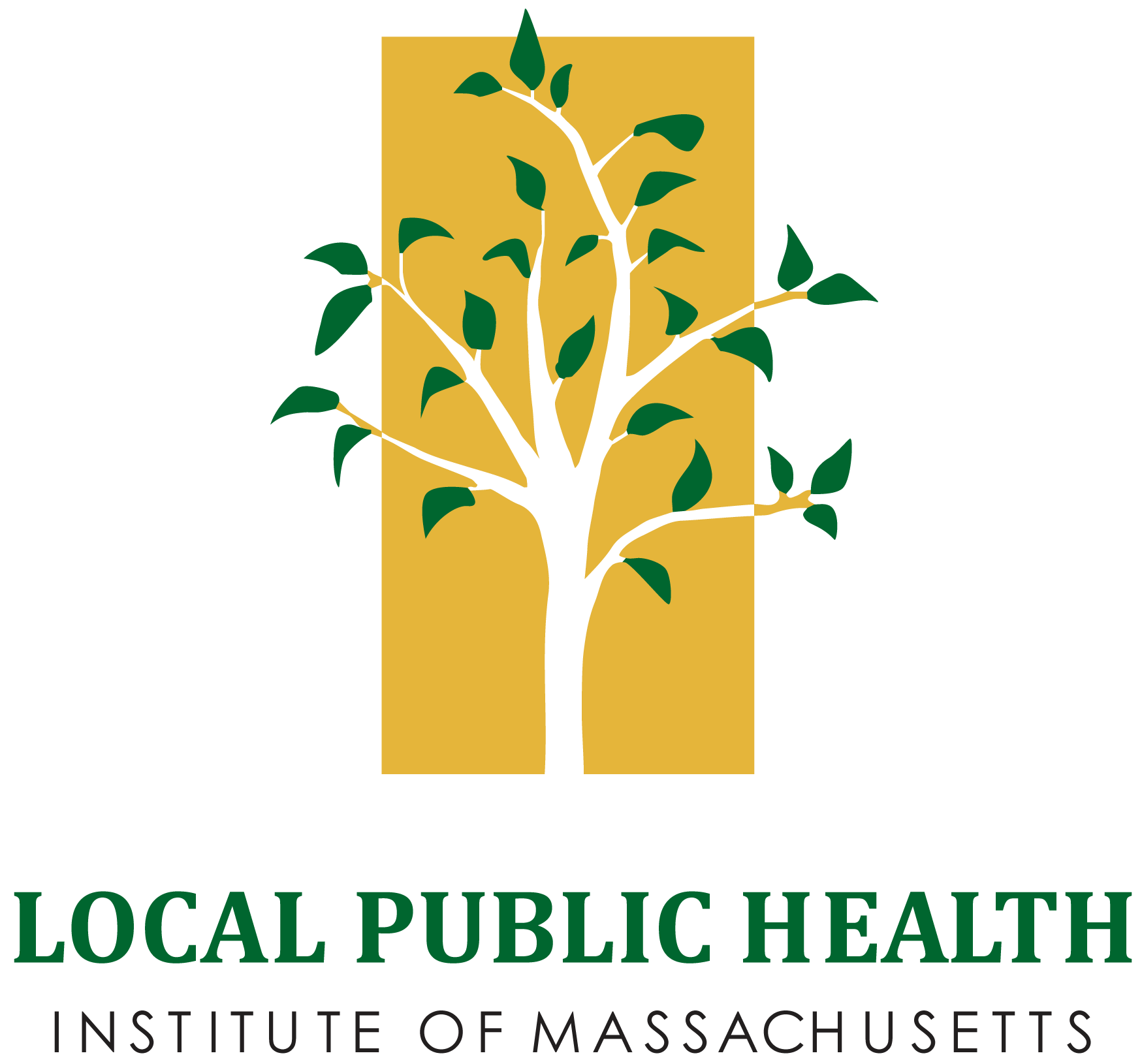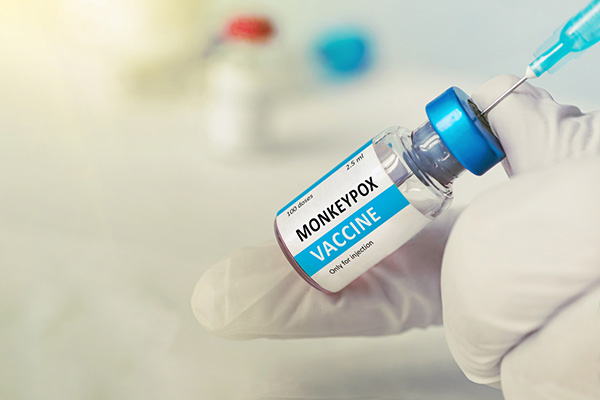
Monkeypox: Old Disease, New Fears
How can the public health system promote equitable access to monkeypox vaccine in a community?



Register
Course Information
- Audience: Public Health Professionals
- Format: Recorded Webinar
- Date/Time: Monday, August 29th, 2022
12:00 PM – 1:30 PM ET - Price: Free
- Length: 1.5 hours
- Credential(s) eligible for contact hours: Sponsored by New England Public Health Training Center (NEPHTC), a designated provider of continuing education contact hours (CECH) in health education by the National Commission for Health Education Credentialing, Inc. This program is designated for Certified Health Education Specialists (CHES) and/or Master Certified Health Education Specialists (MCHES) to receive up to 1.5 total Category I continuing education contact hours. Maximum advanced-level continuing education contact hours are 0. Provider ID: 1131137 Event ID: SS1131137_08292022.If you are not seeking a CHES/MCHES contact hours, if you complete the post-test and evaluation, you will receive a Certificate of Completion. The Certificate will include the length of the course.
- Competencies: Public Health Sciences Skills
- Learning Level: Awareness
- Companion Trainings: None
- Supplemental materials:None
- Pre-requisites: None
About this Recording
This program will explore the importance of stopping the spread of monkeypox without encouraging the spread of stigma. Speakers will address both the epidemiological and social challenges posed by the disease, including what we can learn from past disease outbreaks and from the COVID pandemic. As the country grapples with how best to address monkeypox, there is little doubt that doing so requires both an effective public health response and a clear eye on the challenges of stigma that can readily emerge around the disease. Cohosted with The LGBTQIA+ Center for Faculty & Staff and the Center for Emerging Infectious Diseases.
What you'll learn
At the end of the recording, participants will be able to:
- Describe the epidemiology and clinical manifestations of monkeypox
- Discuss the evidence for the nature of person-to-person transmission of monkeypox
- Describe elements of effective identity-based vs. behavior-based messaging for reducing transmission of monkeypox
- Analyze how distribution of monkeypox vaccine relates to racial injustice
- Describe status of research questions that address mechanisms of pathogenesis, routes of transmission, and vaccine efficacy
- Describe limitations in early federal governmental response to monkeypox in terms of policies and recommendations for testing and vaccinations, and opportunities to improve response going forward
Moderator

Craig S. Andrade
@DRCRAIGANDRADE
Associate Dean for Practice, Boston University School of Public Health

Kellan Baker
@KELLANEBAKER
Executive Director,
Whitman-Walker
Institute
Elle Lett
@ELLELETTMDPHDPostdoctoral Fellow, Computational
Health Informatics Program,
Boston Children's Hospital
Angela Rasmussen
@ANGIE_RASMUSSENResearch Scientist, Vaccine and Infectious Disease Organization, University of Saskatchewan

Sean Cahill
@DRSEANCAHILLDirector,
Health Policy
Research, Fenway Institute,
Adjunct Associate Professor,
Boston University
School of Public
Health
David Hamer
@BUCEIDActing Director, Center for Emerging Infectious Disease Research and Policy,
Professor, Global Health and Medicine, Boston University School of Public Health and School of Medicine
Craig Andrade is Associate Dean of Practice, Director of The Activist Lab, and Associate Professor of Community Health Sciences at Boston University School of Public Health (SPH). In these roles he works to catalyze bold public health practice locally, nationally and globally. Previously Dr. Andrade was the Director of the Bureau of Family Health & Nutrition (BFHN) at the Massachusetts Department of Public Health (DPH). BFHN’s programs include Early Intervention (EI), Pregnancy, Infancy and Early Childhood, Children and Youth with Special Health Needs, Women, Infants and Children (WIC) Nutrition Program, Home Visiting, Title V Maternal and Child Health Block Grant, Breastfeeding Initiative, Birth Defects Surveillance, Universal Newborn Hearing Screening Program, the Office of Data Translation and Birth Defects Research and Prevention. He also served as Director of the Division of Health Access at DPH, helped found the Racial Equity Leadership Team and Cross-Department Racial Equity Collaborative at DPH and was Associate Dean of Health and Wellness and Director of Student Health Services at Wheaton College in Norton, MA. Craig also served as cardiac critical care, public health and adult acute care nurse at Boston Medical Center; nurse manager and head athletic trainer at Buckingham Browne & Nichols School in Cambridge, MA; and was owner/operator of Active Health, a private health and fitness company. Craig is a registered nurse, athletic trainer, licensed massage therapist and strength and condition specialist with masters and doctoral degrees in public health from Boston University School of Public Health.
Subject Matter Experts
Dr. Kellan Baker is the Executive Director of Whitman-Walker Institute, the research, policy, and education arm of Whitman-Walker, a community health system in Washington, DC that also includes Whitman-Walker Health, a Federally Qualified Health Center. Kellan is a health services researcher, educator, and health policy professional with wide expertise in health equity research and policy, particularly with regard to LGBTQ populations. He is a frequent advisor for government and private entities, and he currently serves as an appointed member of a National Academy of Sciences consensus study committee that developed standards for the collection of sex, gender identity, and sexual orientation data by the National Institutes of Health. Kellan holds appointments as affiliate faculty in the Departments of Health Policy and Management at the George Washington University and the Johns Hopkins School of Public Health, and he received his PhD in health policy and management from Johns Hopkins, where he was a Health Policy Research Scholar and Centennial Scholar; an MPH and MA from George Washington University; and a BA with high honors from Swarthmore College.
Dr. Lett is a Black, transgender woman, statistician-epidemiologist and physician-in training. Through her work, she applies the theory and principles of Black feminism to understanding the health impacts of systemic racism, transphobia, and other forms of discrimination on oppressed groups in the United States. She holds a PhD in Epidemiology from the University of Pennsylvania, master’s degrees in Biostatistics and Statistics from Duke University and the Wharton School, respectively, and a bachelor’s degree in Molecular and Cellular Biology from Harvard College. To date, her work has focused on intersectional approaches to transgender health and the health impacts of state-sanctioned violence and other forms of systemic racism. Now, she is turning her focus to algorithmic fairness in clinical prediction models and mitigating systems of inequity in health services provision.
Dr. Rasmussen graduated from Smith College with a BA in Biological Sciences (2000) and received a MA (2005), MPhil (2006), and PhD (2009) in Microbiology and Immunology from Columbia University. She did her postdoctoral fellowship at the University of Washington and previously held faculty positions at the University of Washington and the Columbia Mailman School of Public Health. In addition to her primary appointment at VIDO, Angie is also affiliated with the Georgetown Center for Global Health Science and Security. She is a member of the Verena Consortium, a multi-disciplinary, international effort to predict and study emerging viral pathogens, as well as the Communications Director for the CoVaRR-Net research consortium. She is also a member of the WHO Ad Hoc Expert Committee for Preclinical Models of COVID-19 and sits on the Editorial Boards at Vaccine, mSphere, and Cell Reports. In addition to her research, Dr. Rasmussen is a prolific science communicator on both social media and in the mainstream press, as well as a writer for numerous publications including Forbes, Leaps.org, Slate, Foreign Affairs, the Washington Post, and the New York Times. She is passionate about advocating for equity in biomedical research and public health, and is a member of the US NIH Advisory Committee to the Director Working Group on Changing the Culture to End Sexual Harassment, as well as a faculty mentor for the volunteer science education group Wearing is Caring. She believes strongly that biosecurity and global public health must be collaborative international efforts and is eager to extend this outreach work in Canada and abroad.
Sean Cahill, PhD is Director of Health Policy Research at the Fenway Institute, Adjunct Associate Professor at Boston University School of Public Health, and Affiliate Associate Clinical Professor of Health Sciences at Northeastern University. Cahill serves on the Massachusetts Special Legislative Commission on LGBT Aging, and on the HIV and Aging Policy Action Coalition. An Associate Editor at LGBT Health, Cahill has authored or coauthored over 100 peer-reviewed journal articles, monographs, chapters, and books on LGBTQ+ health, LGBTQ+ public policy issues, and HIV/STI prevention and care.
Davidson Hamer, MD is a Professor of Global Health and Medicine at the Boston University Schools of Public Health and Medicine, the current Acting Director of the Boston University Center for Emerging Infectious Disease Research and Policy, a faculty member in the National Emerging Infectious Diseases Laboratory, and an attending physician in infectious diseases and Director of the Travel Clinic at Boston Medical Center. He is an infectious disease specialist and medical epidemiologist with particular interests in emerging diseases, tropical medicine, travel medicine, infection control, and antimicrobial resistance. Dr. Hamer has been involved in travel medicine for thirty years and from 2014 to 2021, Dr. Hamer served as the principal investigator and, since September 2021, as the Surveillance Lead, of GeoSentinel, a global surveillance network of 71 sites in 29 countries that uses returning travelers, immigrants, and refugees as sentinels of disease emergence and transmission patterns throughout the world. With his collaborators at GeoSentinel, Dr. Hamer has been actively involved in studying the epidemiology of monkeypox and planning a longitudinal study of the serological and virological response to monkeypox in non-endemic populations.
Registration
Select the Enroll Me button below to register for this recording. If you have any trouble accessing the recording, contact support@nephtc.org.
Acknowledgement: This project is supported by the Health Resources and Services Administration (HRSA) of the U.S. Department of Health and Human Services (HHS) as part of award 2 UB6HP31685‐05‐00 “Public Health Training Centers.” The contents are those of the author(s) and do not necessarily represent the official views of, nor an endorsement, by HRSA, HHS or the U.S. Government.

